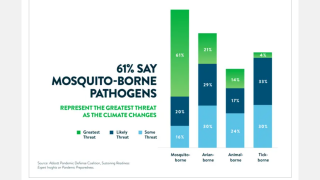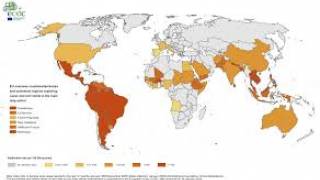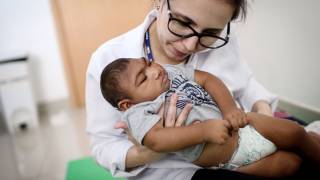Perfection Should Not Be The Goal For Zika Vaccines

A new study found that routinely giving the Zika vaccine to women of childbearing age could save money if the risk of Zika is similar to other mosquito-borne diseases, such as dengue and chikungunya.
Researchers at the CUNY Graduate School of Public Health and Health Policy (CUNY SPH) and the National School of Tropical Medicine at Baylor College of Medicine announced on January 23, 2020, that they have developed a computer model representing the impact to a woman if she becomes infected with Zika, how it varies with pregnancy, and the potential benefits of a vaccine to prevent the Zika infection.
“The study shows that a Zika vaccine doesn’t have to offer near perfect protection to be valuable,” said Sarah M. Bartsch, Public Health Informatics, Computational, and Operations Research (PHICOR) Project Director and lead author of this study, in a related press release.
“In fact, the study shows that in many cases a (Zika) vaccine that only offers protection as low as 25 percent can still produce cost savings in certain situations.”
This study’s findings compared with no vaccination, vaccination was cost-effective $1,254–$82,900/disability-adjusted life years averted when the risk of infection was ≥0.05%–0.08%, and the Zika vaccine efficacy was ≥25%, and vaccination cost was between $1–$7,500.
Furthermore, in some model cases, the Zika vaccine was cost-effective when the risk was as low as 0.015%, the cost was as high as $7,500, the efficacy was as low as 25%, and the duration of protection was just 1 year.
These researchers concluded saying ‘Without establishing vaccine and vaccine implementation characteristic thresholds for decision-makers to aim for, it is difficult to guide the development and use of a Zika vaccine.’
‘Indeed, this study suggests that a one-size-fits-all approach when it comes to vaccine pricing and other targeting, may not be appropriate. The results were significantly different between different country income levels.’
Additionally, ‘Zika vaccination should not be limited to outbreak situations as vaccination proved cost-effective at risk levels comparable to the endemic risk of dengue and chikungunya,’ concluded these researchers.
According to the US Centers for Disease Control and Prevention (CDC), the same mosquito that carries the Zika virus, the Aedes species mosquito, also carries dengue and chikungunya.
These diseases have been endemic in many parts of Latin and South America.
Outbreaks of these diseases have been recorded in the Americas since March 2015, when Brazil began reporting outbreaks.
Moreover, the states of California and Florida reported various travel-related Zika cases during 2019.
The Zika virus is transmitted through sexual contact, transfusion of blood and blood products, and organ transplantation. It can also be transmitted from mother to fetus during pregnancy,
According to the CDC, no vaccine has yet been approved for the prevention or treatment of Zika virus infection. The development of a Zika vaccine remains an active area of research.
This work was supported by the Eunice Kennedy Shriver National Institute of Child Health and Human Development Office of Behavioral and Social Sciences Research and the Global Obesity Prevention Center via grant U54HD070725 and NICHD via U01HD086861, the Agency for Healthcare Research and Quality via grant R01HS023317, the National Institute of General Medical Sciences via Models of Infectious Diseases Agent Study grant U24GM110707, and the U.S. Agency for International Development under agreement number AID-OAA-A-15-00064.
No financial disclosures were reported by the authors of this paper.
Zika vaccine development news can be found at Zika News.
Our Trust Standards: Medical Advisory Committee
























